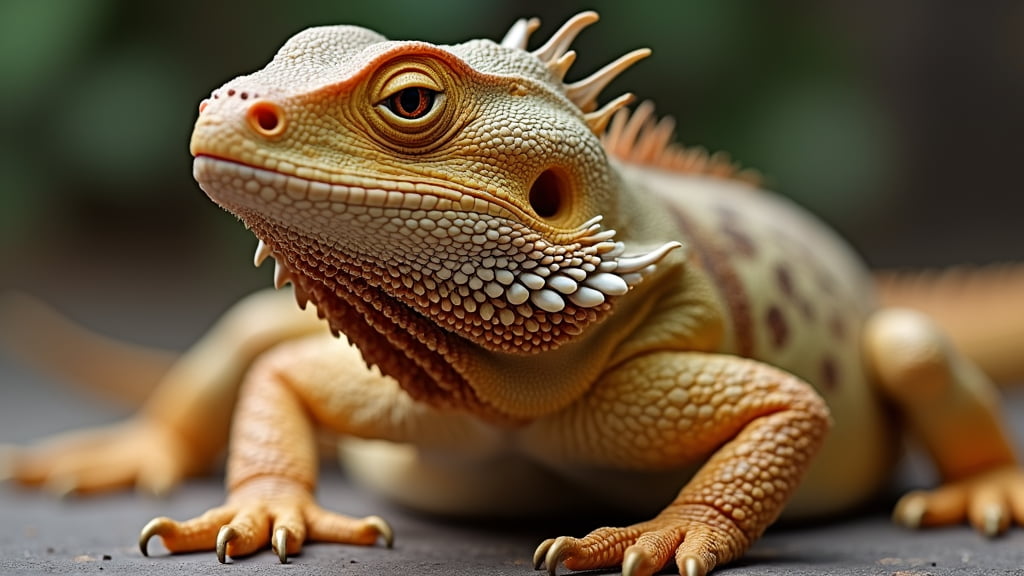If you’ve ever considered bringing a bearded dragon into your home, you’ve probably encountered a plethora of information about their dietary needs. Unfortunately, not all of it is accurate. As an exotic pet enthusiast with years of personal experience, I’ve found that countless myths surround the diet of these fascinating reptiles. Let’s dive into the truth behind these myths to ensure your bearded dragon thrives on a well-balanced diet.
Common Myths About Bearded Dragon Diets
Myth 1: Bearded Dragons Can Eat Anything
Many assume that bearded dragons can consume any food available, but this couldn’t be further from the truth. While their omnivorous nature gives them a diverse diet, not all foods are safe or nutritious for them.
Foods to Avoid
- Citrus Fruits: Oranges, lemons, and grapefruits are too acidic and can upset your dragon’s stomach.
- Avocado: Though healthy for humans, avocados contain toxins harmful to bearded dragons.
- Iceberg Lettuce: Lacking in nutritional value, it’s mostly water and can cause diarrhoea.
Instead, focus on a mix of:
- Leafy Greens: Such as collard greens, mustard greens, and dandelion greens.
- Vegetables: Like bell peppers, squash, and carrots.
- Protein: Crickets, mealworms, and other safe insects.
Myth 2: Insects Should Be the Primary Food Source
It’s a common belief that bearded dragons, particularly juveniles, should primarily consume insects. While young dragons do need a higher protein intake, adults require a balanced diet with more emphasis on vegetables.
Age-Appropriate Diets
- Hatchlings (0-6 months): Approximately 80% insects and 20% vegetables.
- Juveniles (6-18 months): A gradual shift to 50% insects and 50% vegetables.
- Adults (18 months+): About 20% insects and 80% vegetables.
Excessive protein in adults can lead to obesity and liver issues. Therefore, it’s crucial to adjust their diet as they grow.
Nutritional Balance and Supplements
Myth 3: Bearded Dragons Don’t Need Supplements
Even with a varied diet, bearded dragons often require additional supplements to meet their nutritional needs. Essential vitamins and minerals, such as calcium and vitamin D3, are crucial for their health.
Calcium and Vitamin D3
- Calcium: Prevents metabolic bone disease and supports overall health.
- Vitamin D3: Aids in the absorption of calcium.
Ensure you’re dusting their food with a calcium supplement at least several times a week. Vitamin D3 is also critical, especially for indoor dragons without regular exposure to UVB light.
Hydration Myths
Myth 4: Bearded Dragons Get All Their Water from Food
While it’s true that bearded dragons obtain some moisture from their food, they still need a separate water source. Some bearded dragons may not drink from a bowl, preferring to lick water droplets from leaves or enclosure walls.
Providing Water
- Water Dish: Keep a shallow dish of fresh water in their enclosure.
- Misting: Lightly mist their environment to provide additional moisture.
I always ensure my dragons have a fresh supply of water and mist their vegetables to add extra hydration.
Conclusion: Balanced Diet for a Happy Bearded Dragon
Understanding and debunking these common myths can help you provide a well-rounded, healthy diet for your bearded dragon. Remember, what works for one dragon might not be suitable for another, so it’s essential to observe your pet’s preferences and health.
For more detailed guidance tailored to your specific pet, visiting a vet who specialises in exotic animals is highly recommended.
Additional Resources
By adhering to these tips, you’re well on your way to ensuring a long, healthy life for your scaly friend. For further guidance on the bearded dragon diet and related products, explore our recommended product for maintaining optimal health.

